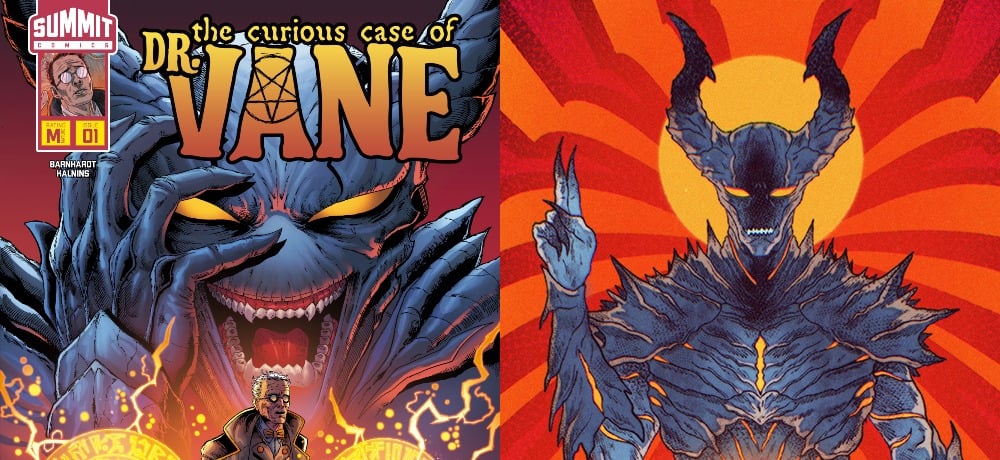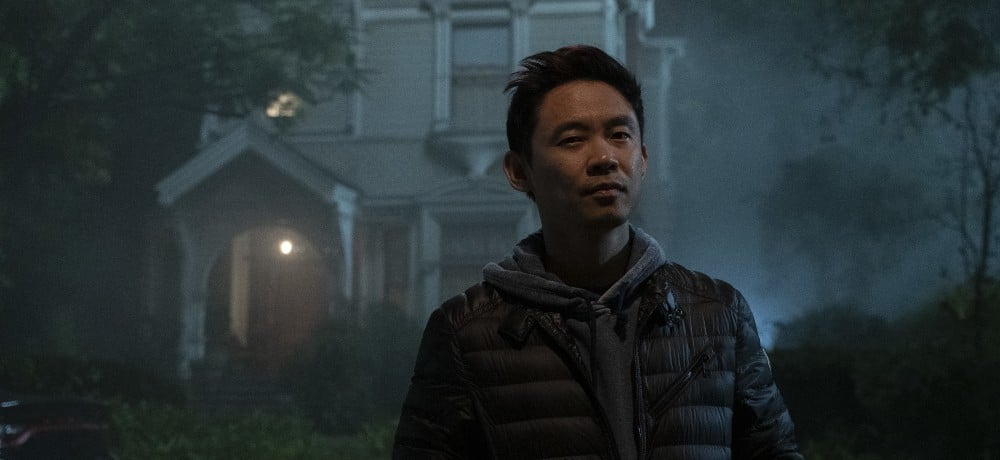






We’re now officially only 10 days away from the release Malignant, of the latest horror offering from genre master James Wan. In the film, Annabelle Wallis plays Madison, a woman who finds herself inexplicably tied to a series of gruesome murders in her dreams that are playing out in real life. Madison sets out to uncover the truth of these occurrences, wholly unprepared for the shocking truth that awaits her.
Recently, Daily Dead had the opportunity to speak with Wan alongside a group of our fellow journalists about Malignant, and he discussed the journey of making the film, working with practical effects, how his latest horror endeavor felt more in line with the movies from his early career, and how Malignant was James’ opportunity to reinvent himself after nearly two decades in the business.
Malignant arrives in theaters and on HBO Max on Friday, September 10th, courtesy of Warner Bros. and New Line Cinema.
From inception to what happens on screen, how did the story of Malignant change along the way? And I'm also curious about the editing process, how, in the editing room, the story changed, and what you learned during that process.
James Wan: For sure, yes. The inception of it was when Ingrid Bisu, my wife, came to me with this really crazy medical condition. And from that, naturally, with my horror movie mind, I was attracted to the possibility of a story or a film that could be pulled from this particular affliction, and it just started from there. We went through different ideas on what kind of story it could become, what kind of movie it could become. And then at some point, it just started becoming more real, it became a full-blown story, and then at that moment, I had to decide what kind of movie I wanted to make.
And I've had the aspiration to want to go back to the early kind of films that I started my career with, like my Saw, Dead Silence, Death Sentence days where I was allowed to make these films that were a lot more gritty and more visceral. I just felt naturally this particular concept and story really lent itself to that, and we went along with it. In terms of editing, the trickiest part was we shot a lot of stuff that was written in there but in editing, you start to question yourself, like am I giving too much of the concept away? Am I laying the bread crumbs a little bit too thick here that would just destroy the reveal at the end, if you will? And so it was a fine line. And the editing process was all done during the pandemic, too. We had to do it remotely. It was really difficult, but then we got into the groove of things, and ultimately what it allowed me was it allowed me some distance away from the film, and then to come back into and look at it, and then reassess the film and tweak some things.
You’re using a bunch of practical effects in this, including animatronics. How much did that change your style in terms of working a camera and things like that? Did it change it at all in terms of how you shot this with Michael [Burgess] or was it business as usual?
James Wan: It was a little bit of both. Like most practical effects, you need to hide the puppeteer, right? Literally, you need to hide the cables and stuff like that. But the great thing with having modern visual effects at our disposal compared to what they had in the ‘80s is, I could paint people out. I can have people who could be really close by, can have cables sticking out and stuff like that, that doesn't have to be in the final film. It made the process much better in that respect and I was fortunate enough to have ILM on the film as well which could help me take the effects to the next level. It was pretty cool to bring with me all the experiences that I've gained from making my bigger movies to this film that is really made with the spirit of a more down-and-dirty approach.
What were the most important influences to you when you were creating this story?
James Wan: Oh my goodness. I describe the movie not just as a genre-bender, but a genre-blender. It really is a blender of a whole bunch of stuff that has influenced me over my years growing up loving these kinds of movies, from science fiction to science fiction horror to psychological horror to monster movies. The blender happens to be my head, that they'll go in there and this is what comes out of it. But listen, there's no denying the fact that I have always been a big fan of Italian horror films and, yes, this movie has the aesthetic of a Giallo movie, of the likes of the Bavas and the Argentos of the world. And body horror definitely is such a big part of this film, too. I can't pinpoint it to, let's say, one inspiration. I would say it's a combination of things.
We've had a really good run of horror movies in recent years and I think your efforts have certainly played a role in that going back to, as you said, when you started out. Did you feel it was important now for you to reconnect with your horror roots, especially in between doing some big action spectacles and things like that? Also, have you kept up with some of the other stuff that's been going on in the genre?
James Wan: You know, it's funny that you pointed that out. It is a big part of why I wanted to go back and do Malignant and make this film the way it is, is I feel like, over the last 10 years between the Insidious films and the Conjuring films, I've become known as the supernatural ghost guy who comes up with these jump scares. I'm not a fan of repeating myself, or at least not repeating myself this often, and I just felt like it was time for me to do something a bit different again and really harken back to my harder-hitting horror films that I broke out with. Really, it's to let the hardcore horror fans out there know that I haven't forgotten about them. I don't want to be stuck just doing the one thing that I've become known for right now. I don't like to repeat myself and that was a lot of the driving force behind making Malignant the way it is.
Also, not wanting to make a sequel, do a remake, whatever. I just wanted to come up with an original story that allows me the freedom to experiment with different kinds of filmmaking, to play with prosthetics, play with practical effects and also to play with visual effects to a certain level and make movies with people that I want to collaborate with. [Really at the end of the day, I just want to keep reinventing myself. I'm very thankful for what I've achieved in this genre, especially, but I still think I have a lot more to give and I want to keep finding other stuff to do it with. I mean, there's a reason I didn't come back to do Conjuring III. It's because I was too busy making Malignant. So yeah, my primary goal was to go off and come up with something different, something new, and to continue exploring stuff that interests me.
-------
Editor's Note: check out a brand-new clip from Malignant below, along with the recently released trailer!
[Photo Credit: Matt Kennedy, with permission from Warner Bros.]